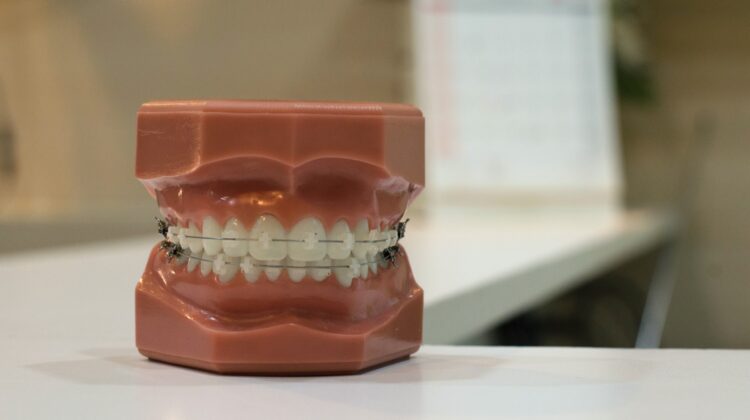
Parents often wonder about the right age for their children to get braces. Usually, children get braces at the age of ten to fourteen – after their permanent adult teeth have grown. But contrary to popular belief, it is wise to get braces for your children at the age of six or seven. This can help correct any structural problems early on and prevent additional issues at a later stage. Healthy baby teeth are essential for a child’s overall dental health. So, in this article, we will talk about how to know if your child needs braces.
Here’s a look at why healthy baby teeth are essential for children –
- Healthy baby teeth help children in speaking clearly.
- Baby teeth with a healthy structure help a child in getting a normal facial appearance.
- Clean and decay-free baby teeth help to set children up for a lifetime of good dental health
8 Signs that Show that Your Child Needs Braces –
1. Losing Baby Teeth Early

Early loss of baby teeth due to decay or natural reasons may lead to braces. Children who lose their teeth early need baby braces to prevent their growing adult teeth from tipping into the empty spaces in their gums. Braces hold the empty spaces open to allow adult teeth to grow normally.
2. Gaps Between Teeth
It is usual for children to have gaps between their baby teeth. Gap teeth could also be a result of excessive thumb sucking. However, once their bigger adult teeth grow in, gaps between teeth cause speech problems, problems with appearances, and food getting trapped in the teeth. It is advisable to get your child braces in this case.
3. Crooked or Crowded Teeth
This is a simple sign that most people notice early on. If your child’s teeth are crowded together or overlap one another, then they will need braces to correct their dental structure. Sometimes, a new tooth’s growth helps restore other teeth’ position, but this is relatively uncommon. Apart from affecting facial appearance, crooked teeth can also make chewing or biting uncomfortable for your child. Braces help in correcting the position of crooked or crowded teeth.
4. Misalignment of the Jaw

Sometimes, a child’s jaw may be misaligned and may not match the upper jaw’s position and alignment. Braces can help fix this misalignment to prevent cross-bites, overbites, or underbites in your child. Children with misaligned jaws find it challenging to chew or bite neatly. They may even end up biting their cheek or tongue due to the misaligned jaw.
5. Bite Related Problems
If your child’s upper and lower teeth don’t usually sit when they close their mouth, it could be a bite-related issue. Braces on baby teeth can help correct the problem for life.
Here Are Some Problems With the Bite to Check For –
- Underbites: If the lower jaw sits forward of the upper jaw.
- Open-bites: If the upper and lower front teeth don’t touch each other when the mouth is closed.
- Overbites: If the upper front teeth stick out too far, it is an overbite problem.
- Deep bites: If the front teeth overlap the lower teeth excessively, they may hurt the child’s lower gum line. This is known as a deep bite.
6. Prolonged Thumb Sucking / Dummy Sucking
Thumb sucking or dummy sucking for a long time can spoil your child’s teeth’ dental structure. Typically children grow out of the habit of sucking on their thumb or pacifiers within two to four years of age. If this is not the case, and the child continues to suckle even when adult teeth start to grow in their mouth – this can lead to serious orthodontic problems.
7. Biting or Chewing Related Difficulties
If your child constantly struggles when biting into tough foods such as apples, or they complain about pain while chewing – then your child may need braces—grinding teeth while sleeping is also a sign of misaligned teeth. Correct these problems with the help of timely dental treatments and braces.
8. Breathing from the Mouth
Children who fall into the habit of breathing through their mouths during the day or night keep their mouths open for long periods. This can affect their facial structure and the alignment of their teeth. If your child has a similar problem, you must visit an ENT specialist to check for the proper functioning of airways, tonsils, and adenoids. The ENT may suggest the use of braces to correct this problem.
It is best to begin regular dental check-ups for children from a young age. But seven years is the right age for your child to meet an orthodontist, who can recommend if your child needs braces to correct any dental problems they have. Early treatment can help in quick rectification and improve your child’s self-confidence. Properly aligned teeth also help in developing clear speech and beautiful smiles.
If you could identify any of the above signs you can visit a dentist. Hope you found the article useful. Please leave your valuable inputs in the comments.
Leave a Reply